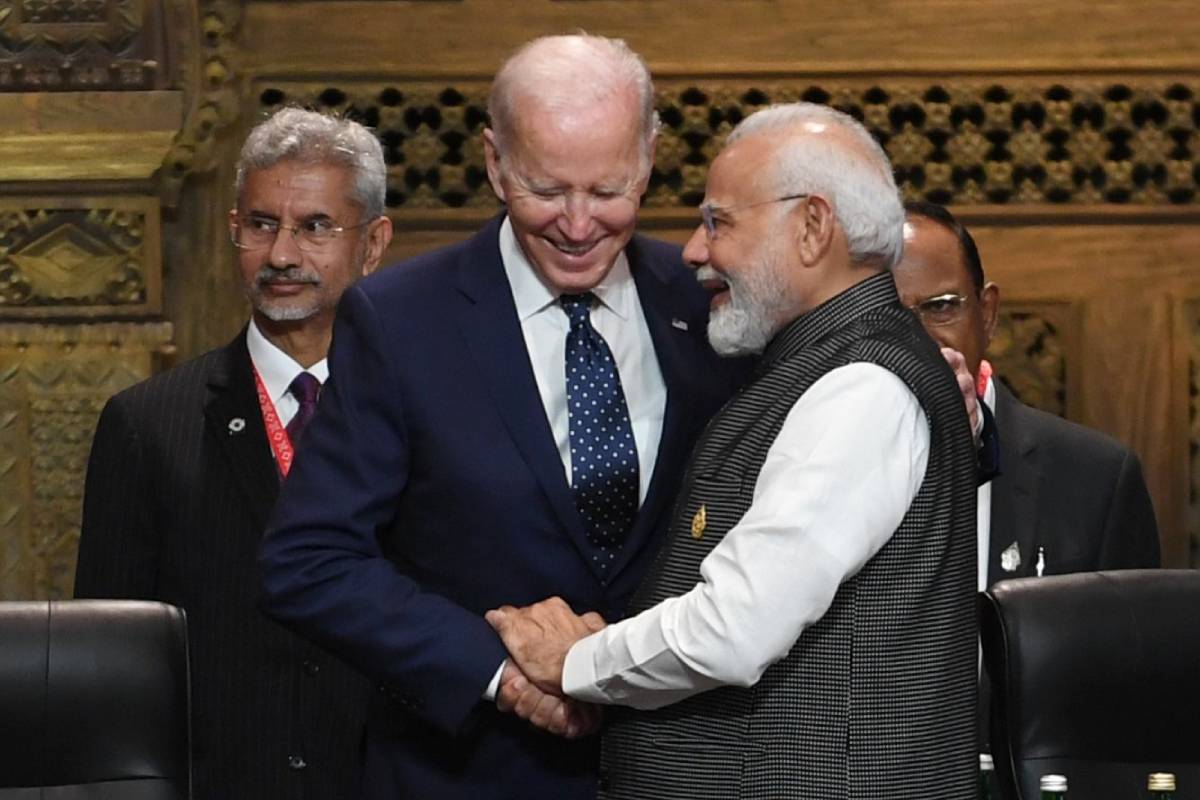Since the annual Jagannath Yatra has come around just when Prime Minister Narendra Modi is visiting the US, I am reminded of a phrase I heard in Washington DC last year: ‘the Modi Juggernaut’.
I didn’t hear it from Indian-origin American bhakts, or during a chat with Indophiles. No, not even in some random street conversation with local citizens. The phrase was used by government officials who deal with this part of the world.
They seemed confident that Mr Modi’s leadership of India was strongly anchored, and that he wasn’t going any place soon.
Over the next few months, I have been repeatedly reminded of another point they had made during that conversation — that India’s economy seemed better placed than any other major economy on the planet. They pointed out that India’s inflation was lower than that of most other large economies — and projections too looked good.
ALSO READ: Modi’s US visit: Geopolitical games & bids to overthrow BJP in 2024
This was before the discourse about India being the next superpower became current on YouTube et al, the way it has now become. So, naturally, that analysis stayed with me.
Allegations of interference
This positive talk was particularly notable in light of the balanced stand India had taken over the previous few months regarding Russia’s war in Ukraine.
Washington could not have been pleased, for India has sometimes been counted as a (at least partial) US ally on the world stage. And yet, here they were talking of a ‘Juggernaut’ premier, and a buoyant economy.
In the weeks after the Ukraine war began, mind you, there had been much speculation about foreign interference in the processes which brought down governments in India’s neighbourhood — both Sri Lanka and Pakistan.
In fact, Pakistan’s former prime minister Imran Khan openly named the US as being behind his ouster from power.
India too had abstained from several UN resolutions condemning Russia for invading Ukraine. And, not only did it continue to trade with Russia, it steeply increased its import of oil and petroleum products from Russia.
Some have even argued that Chinese, Indian, and Turkish imports kept the Russian economy afloat over the past year and a quarter.
ALSO READ: BJP’s stance towards Indian Muslims has evolved
Speculations last winter
In light of such analyses, and those allegations just next door, one’s geopolitical antenna whirred a little when unexpected political events and trends occurred in India, including massively positive social media buzz around some events last winter.
In fact, one wondered about the sharply decreased imports of oil from Russia just when Rahul Gandhi’s Bharat Jodo Yatra climaxed at the beginning of this year.
Quite apart from India’s responses to the war, there could well be at least subliminal level of distrust in some corridors of US power over Modi’s public backing of President Donald Trump for another term during his visit to the US in September 2019.
Modi’s politics is in any case far more in tune with Trump’s than with the Democratic Party. The state department has publicly criticised religious intolerance in India.
Election overhang
General elections are due in both India and the US next year. India’s are around ten months away, and the Biden administration’s current term is till the end of next year.
Modi and Biden, and their delegations, will no doubt discuss the Ukraine war, and their respective perspectives on threats from China. They may well discuss the need to revamp the UN, the future of Quad, and other international bodies and alliances.
Amid all these meetings and discussions, the uncertainties of next year’s elections inevitably hangs over the leaders of both countries.
While most analysts suspect that US agencies interfere in the politics and elections of various countries around the world, some have accused major powers (both Russia and China) of interfering in US elections in 2016 and 2020.
ALSO READ: After meeting, Elon Musk says he’s ‘fan of PM Modi’ & his India vision
Now, as I said at the beginning of this article, some decision-makers in the US see India too as a rising global player. And, a precedent was set at the 2019 Houston rally of persons of Indian origin for even an open show of support by India.
Not only is there a significant number of so-called ‘Indian-Americans’ in the US, they are the wealthiest demographic segment in terms of income. And US elections hinge on public contributions to the campaign chests of candidates.
Of course the slogan raised in Houston represented Modi’s backing for Trump. He will surely not switch sides this time round, at least publicly.
On the other hand, no less than 70 Democratic Congresspersons and Senators yesterday pressed Biden to bring up human rights concerns during his meeting with Modi. Given Biden’s network of long-time associations in both houses, it seems more likely than not that these views are in consonance with his own.
This could indicate that the ruling set-up in Washington is at least divided with regard to Modi — despite a clear assessment of his domestic popularity, and the rise of India.
YOU MAY ALSO LIKE:

















